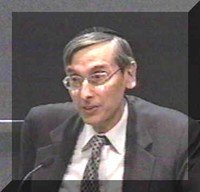Rabbi David Berger
Ruth & I. Lewis Gordon Professor of Jewish History and Dean, Bernard Revel Graduate School of Jewish Studies, Yeshiva University
(New York, NY) Mar 18, 2014
Rabbi David Berger was raised in Brooklyn, NY, where he attended the Yeshiva of Flatbush for both elementary and high school. He is a graduate of Yeshiva College, has Smicha from the Rabbi Isaac Elchanan Theological Seminary and studied at Columbia University where he completed an MA and Ph.D. For many years, Rabbi Berger was Broeklundian Professor of History at Brooklyn College and the Graduate Center of the City University of New York. He is a Fellow of the American Academy for Jewish Research and serves on the Council of the World Union of Jewish Studies and the editorial board of Tradition. He has been President of the Association for Jewish Studies, Co-chair of the Academic Advisory Committee of the National Foundation for Jewish Culture, a Fellow of the Annenberg Research Institute, a Visiting Scholar at the Institute for Advanced Studies in Jerusalem, and Visiting Professor at Yale University and Harvard University. Rabbi Berger has been a member of the RCA for about twenty years. He has been an RCA representative to IJCIC (International Jewish Committee for Interreligious Consultations) for many years and chairs the RCA's interfaith committee. Rabbi Berger has spoken at several RCA conventions, mostly on Jewish-Christian relations. He is the author of The Jewish-Christian Debate in the High Middle Ages, which was awarded the John Nicholas Brown Prize by the Medieval Academy of America, and co-author of Judaism's Encounter with Other Cultures: Rejection or Integration?, a Finalist for the Jewish Book Award in Jewish Thought. His book, The Rebbe, the Messiah, and the Scandal of Orthodox Indifference, which has now been published in an updated Hebrew version (“Ha-Rebbe Melekh ha-Mashiach,” Sha’aruriyyat ha-Adishut, ve-ha-Iyyum al Emunat Yisrael), received the 2003-2004 Samuel Belkin Literary Award. He has written numerous studies on medieval Jewish history, Jewish-Christian relations, anti-Semitism, and the intellectual history of the Jews, many of which have now been re-published in two volumes of collected essays: Persecution, Polemic, and Dialogue: Essays in Jewish-Christian Relations and Cultures in Collision and Conversation: Essays in the Intellectual History of the Jews. Looking at his career through a rabbinic or religious lens rather than an academic one, Rabbi Berger considers his most important activities to be the following: • Writing Jews and “Jewish Christianity” with Michael Wyschogrod, Several testimonials indicate that it has saved at least a few people from shmad. • Writing the medieval and early modern section of Judaism’s Encounter with Other Cultures as well as several contributions to Tradition and other publications to defend and delineate the ideological stance of Modern Orthodoxy on a variety of issues. • Teaching in the inaugural mini-semester of the Steinsaltz yeshivah in Moscow in 1989—the first time that an officially recognized yeshivah was permitted to operate in the Soviet Union. • Introducing many students who were to become leaders of Orthodoxy to the serious study of Jewish history. • Presenting the views of Jews in general and Orthodox Jews in particular in interfaith forums. On occasion, these presentations afforded the opportunity to address misperceptions of Zionism and the State of Israel. • Attempting to persuade the Orthodox community that it must act vigorously to delegitimate what he has described as “the false messianism prevalent in the Lubavitch movement that even reaches the level of avodah zarah among a non-trivial minority.” Rabbi Berger has characterized his work in this area as follows: “On the one hand, i was deeply gratified by the 1996 RCA resolution on this matter and by its policy of denying admission to rabbis who will not reject belief in the Messiahship of the Rebbe. On the other hand, believers continue to be recognized as Orthodox rabbis in many if not most Orthodox circles and exercise functions of great religious moment within the community. Consequently, I live with the unspeakably distressing consciousness that after devoting much of my career to the study of the Jewish-Christian debate, I have seen the Orthodox rabbinate of my generation destroy defining elements of the religion they are charged to protect and obliterate fundamental theological distinctions between Judaism and Christianity that our ancestors gave their lives to preserve." Rabbi Berger is married to Pearl, who is Dean of Libraries at YU. Together they have three children.


